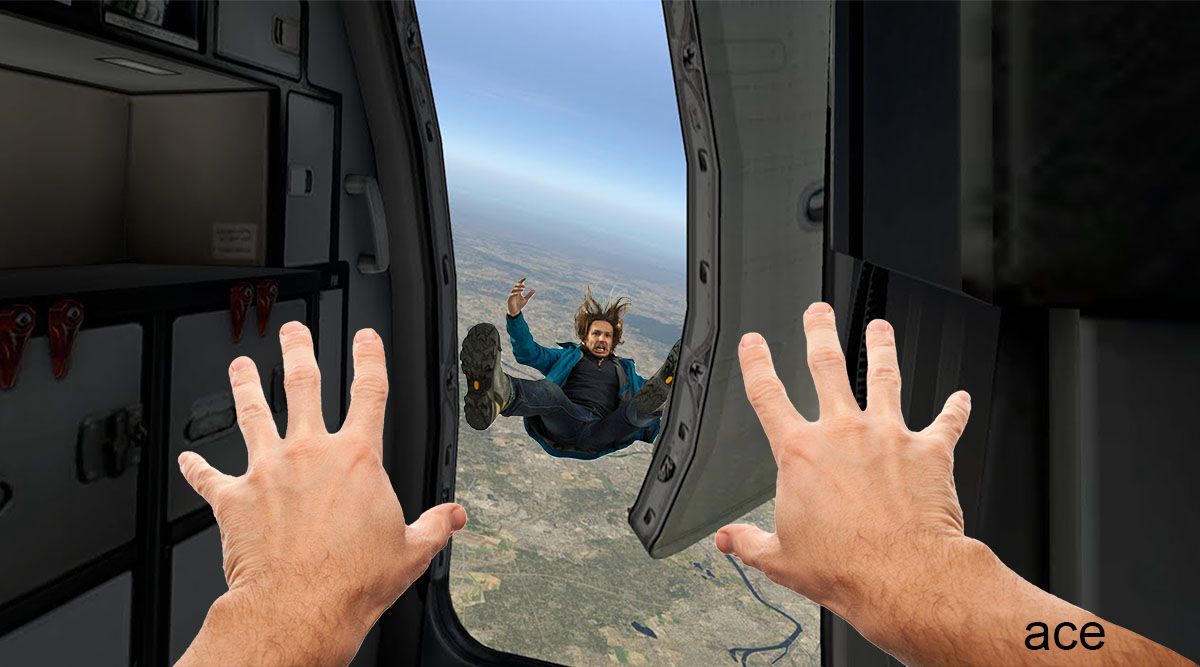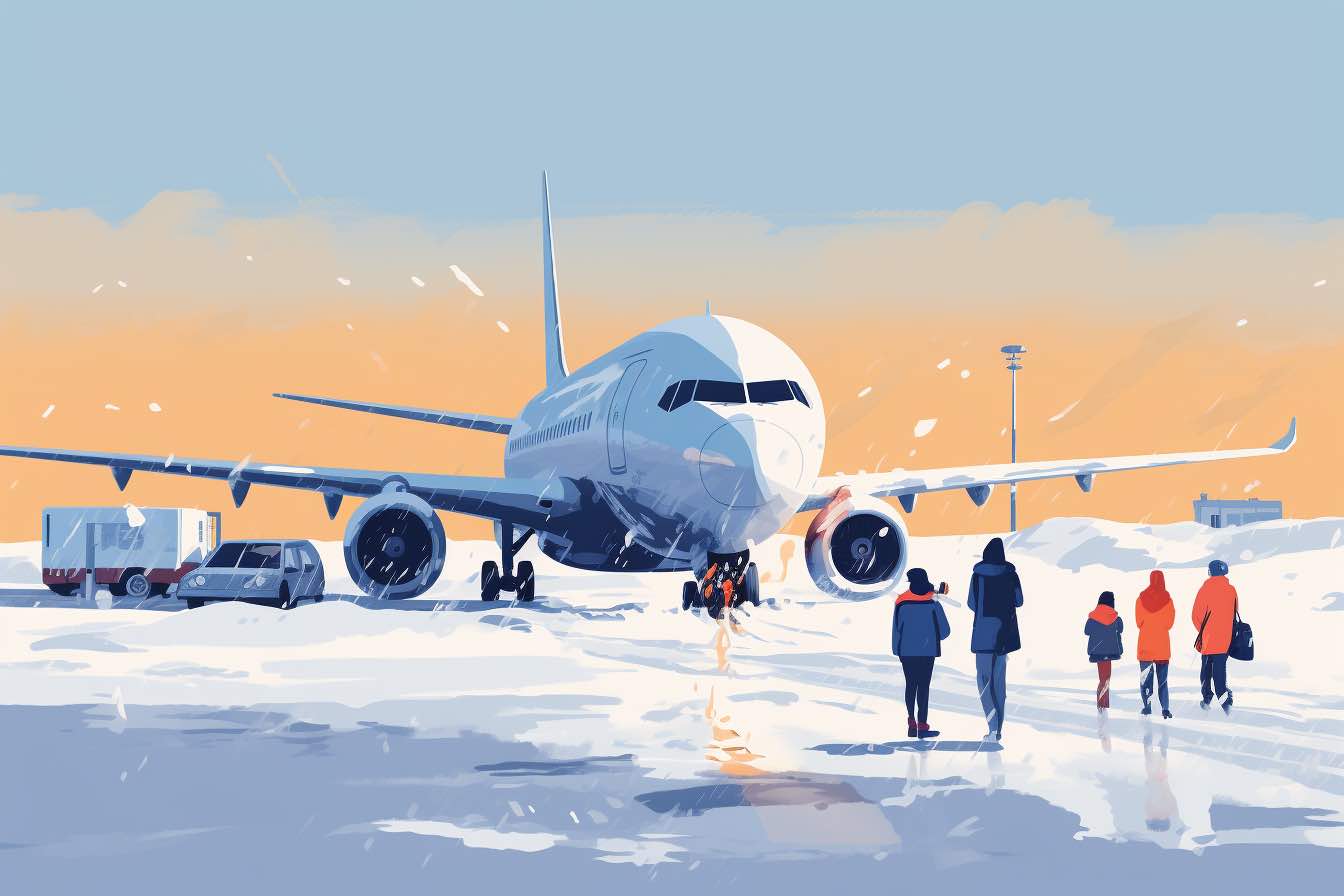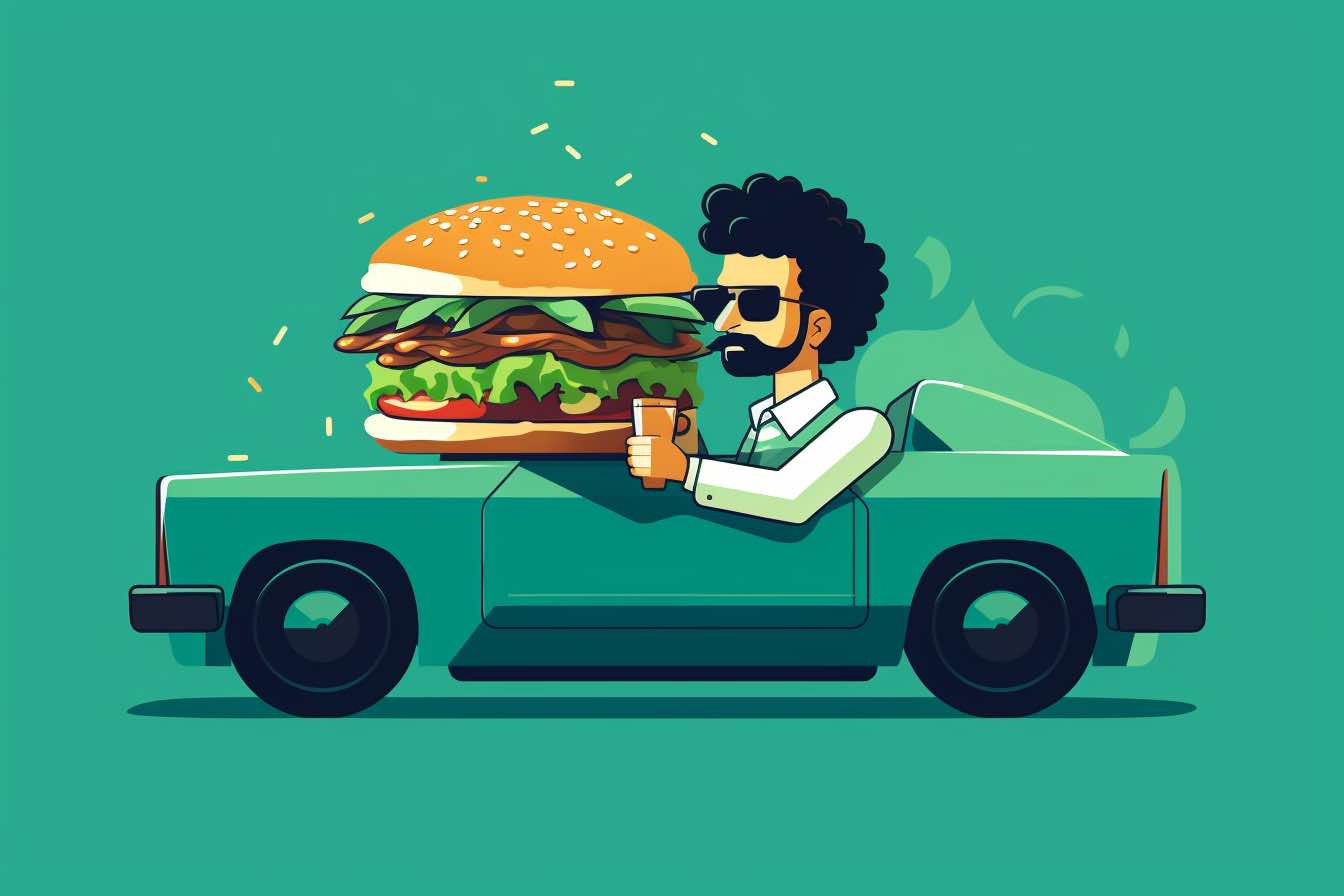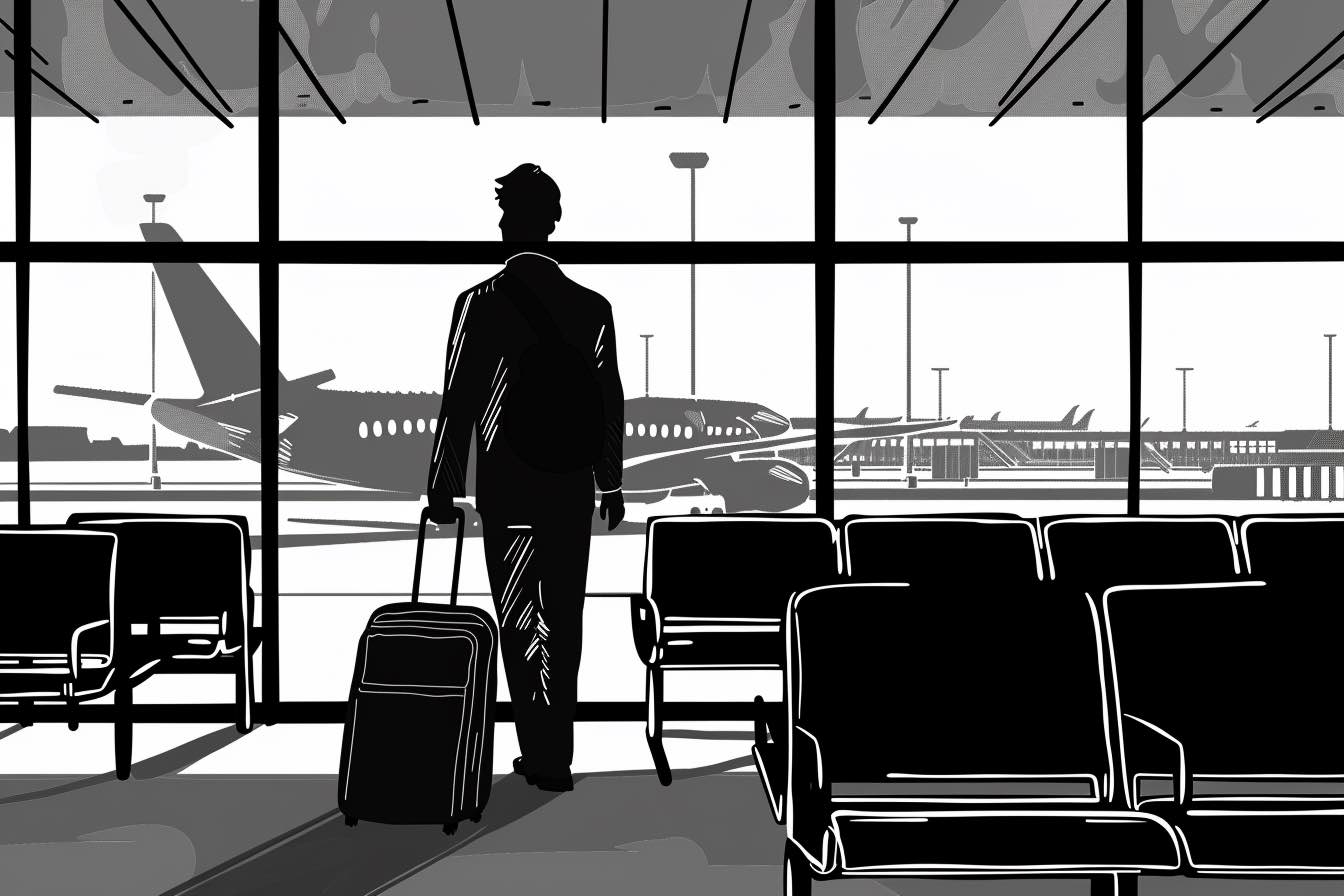What does your airline owe you if it denies you boarding?
Passengers like John Keohen want to know. He flew from Minneapolis to Naples, Italy, via Chicago. During his stopover, a Lufthansa representative offered him $800 to give up his seat and take a later flight — what’s called a “voluntary” denied boarding.
Why? Lufthansa had overbooked his flight.
“We took him up on that offer,” Keohen says. Lufthansa told him to contact the airline when he got home to get his money, a violation of federal law.
But his troubles were just starting.
[ez-toc]
What is denied boarding?
Denied boarding — also called “bumping” — happens when an airline sells more tickets than available seats.
Airlines use sophisticated reservation systems to predict the number of passengers who are likely to show up for a flight. But sometimes, the systems aren’t accurate, which results in an oversold flight.
Bumping isn’t illegal. But it is frowned upon by the government, which requires airlines to report the number of denied boardings each month. Airlines also must pay cash compensation when they deny a passenger boarding. More on that in a moment.
Where’s my $800, Lufthansa?
When Keohen came home, he noticed that Lufthansa hadn’t paid him $800 as it had promised. He wrote a cordial email to Lufthansa’s executive contacts asking the airline to honor their agreement.
It refused.
Kindly allow us to explain that we do not offer compensation for any irregularities on a rebooked flight unless it is the affected original segment.
There was a delay on your first segment, which caused you to miss your original connecting flights. Since the operating carrier of the delayed flight was a non-European airline and was departing from a non-European airport, EU regulation does not apply.
Of course, he hadn’t missed his flight. And his denied boarding had nothing to do with European rules. It had everything to do with U.S. law, which tightly regulates denied boarding.
Are airlines allowed to sell more tickets than they have?
Yes. But oversales are regulated by the federal government. Rule 250.2 requires air carriers to minimize the impact of an overbooking and outlines a framework for accommodating passengers.
It states,
In the event of an oversold flight, every carrier shall ensure that the smallest practicable number of persons holding confirmed reserved space on that flight are denied boarding involuntarily.
In other words, an airline can’t just oversell a flight and then walk away. It will face consequences with the Department of Transportation.
How often do airlines deny passengers boarding?
Bumping is rare. Budget airlines like Allegiant and Frontier are the likeliest to oversell their flights, but the number is still very low — around 5 denied boardings per 100,000 passenger enplanements. For legacy airlines like Delta and United, the number is almost zero.
If you’re curious about your airline’s denied boarding record, you can find its latest numbers on the Department of Transportation’s Air Travel Consumer Report.
The odds of you being involuntarily denied boarding are roughly the same as being killed by bees. But the chances of an airline asking you to give up your seat voluntarily are far higher. No one tracks that data, but based on the number of cases we receive, and my personal experience, it could potentially happen on any sold-out flight.
Voluntarily denied boarding
When an airline oversells its flight, it first requests volunteers. The government defines “volunteers” as passengers who respond to the carrier’s request to give up their seat willingly and accepts the carriers’ compensation in exchange for relinquishing a confirmed reserved space.
In other words, the airline must ask you to give up your seat — and you must agree Otherwise, the government considers you an involuntary denied boarding incident.
The voluntary-versus-involuntary drama often unfolds quickly at the gate within the final minutes of boarding. The airline is counting on one or two passengers not showing up for their flight. But when everyone shows up, it has to find volunteers — and if it can’t, it must bump some customers.
What does an airline owe me if I voluntarily give up my seat?
The airline doesn’t have to give you anything, strictly speaking. But if it offers free or reduced rate air transportation as compensation, it must disclose all material restrictions. That includes any administrative fees, advance purchase or capacity restrictions, or blackout dates.
The airline must tell you this before you agree to give up your seat. If an airline representative promises you anything, an airline representative must also orally provide a brief description of the material restrictions on that transportation at the same time. But you will want to get everything in writing before saying “yes.”
And, of course, the airline must follow through on its promises, according to the law.
One more thing: Under federal law, carriers must pay the compensation quickly. They can’t wait until you request the payment before giving it to you.
If I voluntarily give up my seat, am I entitled to any compensation?
No. You are only entitled to whatever the airline initially offered you.
What are the exceptions to these rules?
There are a few exceptions to the denied boarding rules. They include:
You fail to follow the contract of carriage
If you don’t follow all the provisions in the airline’s contract of carriage — the legal agreement between you and the airline — it doesn’t need to compensate you. Simply put, that means if you don’t check in on time or if you’re disruptive, all bets are off.
It’s a small plane or there are safety concerns
There’s a loophole for small aircraft. If your airline switches to a plane with 60 or fewer seats for “operational or safety reasons,” then it owes you nothing. If the plane can’t accommodate you for safety reasons, no matter the size of the plane, no compensation is due, according to federal law.
You refuse a downgrade
If you have a seat in business class and there’s room in economy class, an airline may offer you that seat and refund the fare difference. If you refuse the new seat, the airline doesn’t have to compensate you. But beware of airline math: Some airlines will calculate the fare difference using full-fare economy class, which sometimes means little or no fare refund. Make sure you know how much you’re getting if you agree to a downgrade.
The airline can get you there on time (more or less)
If your airline can get you to your destination within an hour of your original arrival time, it doesn’t owe you anything.
What to look for when an airline asks you to volunteer
Carefully consider the airline’s offer before saying yes. The government doesn’t regulate the type of compensation an airline offers, so it could offer you anything — or nothing.
When is my next flight?
If you have a confirmed seat on the next available flight, that might work. But you may never get home if it’s a standby flight on a holiday weekend. Ask what an airline will do for you while you wait. Will it include meal and hotel vouchers, or are you on your own?
When does the voucher expire?
Ask about expiration and any blackout dates. Remember, budget airlines issue vouchers that expire quickly, some in as little as three months. The voucher you’re getting may be worthless.
Are there any other restrictions?
Airlines allow you to only use some vouchers for domestic flights. It won’t allow you to transfer others. Find out before you accept the voucher.
Pro tip: Wait for it
If your airline’s voucher doesn’t look right, just say no. If the airline is desperate enough, it will increase its offer (under federal law, it can offer up to $10,000 in compensation). Airlines can also revise the terms on their vouchers to allow you to fly internationally or transfer the voucher. So you may want to ask about that before you agree to become a volunteer.
Involuntary denied boarding
Involuntary denied boarding means your airline forces you off your flight. It can happen for two main reasons.
1. Your airline oversold the flight
This means there aren’t enough seats on the plane. Airlines have a formula for deciding who gets bumped. It takes into account such factors as connections, elite status, and the amount of money you spent on your ticket. A super-elite traveler making a connection would be least likely to be bumped. A solo traveler who paid the minimum amount for the seat, and traveling point-to-point? You’re probably outta here.
2. You’ve misbehaved
Your airline could also kick you off the flight for your behavior — another form of involuntarily denied boarding.
The most high-profile passenger expulsion was David Dao, the doctor forcibly removed from a United Airlines flight in 2017 after he refused to give up his seat after boarding. Congress passed the Transparency Improvements and Compensation to Keep Every Ticketholder Safe Act after that incident. The law prohibits air carriers from denying a revenue passenger traveling on a confirmed reservation permission to board, or involuntarily removing that passenger from the aircraft, once a revenue passenger has checked in for the flight after the check-in deadline and had his or her ticket scanned.
If I’m involuntarily bumped, does an airline have to tell me about my rights?
If your airline bumps you from a flight, the Department of Transportation requires it to give you a written statement describing your rights and explaining how the carrier decides who gets denied boarding.
How much does an airline owe me for an involuntarily denied boarding?
Compensation for involuntarily denied boardings is codified in federal law.
Domestic compensation
If your airline bumps you but reschedules you on another flight that gets you to your destination within an hour of your planned arrival, it owes you nothing. That’s true for international and domestic flights.
If you get bumped and the airline schedules you on a flight that arrives more than one hour but less than two hours after the planned arrival time, you’re entitled to 200 percent of your one-way fare, up to $775 (whichever is lower).
If you get bumped and the airline schedules you on a flight that arrives more than two hours after the planned arrival time, you’re entitled to 400 percent of your one-way fare, up to $1,550 (whichever is lower).
Length of Delay Compensation 0 to 1 hour arrival delay No compensation 1 to 2 hour arrival delay 200 percent of one-way fare (no more than $775) Over 2 hour arrival delay 400% of one-way fare (no more than $1,550)
International compensation
Again, if your airline bumps you but reschedules you on another flight that gets you to your destination within an hour of your planned arrival, it owes you nothing.
If you get bumped and the airline schedules you on a flight that arrives more than one hour but less than four hours after the planned arrival time, you’re entitled to 200 percent of your one-way fare, up to $775 (whichever is lower)
If you get bumped and the airline schedules you on a flight that arrives less than four hours after the planned arrival time, you’re entitled to 400 percent of your one-way fare, up to $1,550 (whichever is lower).
Length of Delay Compensation 0 to 1 hour arrival delay No compensation 1 to 4 hour arrival delay 200 percent of one-way fare (no more than $775) Over 4 hour arrival delay 400 percent of one-way fare (no more than $1,550)
Bottom line: If your airline bumps you from a flight, it must get you to your destination and compensate you based on the length of your delay. If you’re delayed by more than an hour, you get money from your airline.
How long does it take to get my compensation for denied boarding?
The government requires airlines to compensate you on the spot — at the airport on the day of your flight. If the airline can offer substitute transportation that leaves before it can pay you, then it has 24 hours after the bumping incident.
What if I’m flying on a “free” ticket?
Federal law addresses “zero fare” tickets. It says for the purpose of calculating denied boarding compensation, your fare is “the lowest cash, check, or credit card payment charged for a ticket in the same class of service on that flight.” In other words, the airline doesn’t get to deny you compensation because you’re using a frequent flier ticket or a ticket you won in a raffle.
What if an airline denies me boarding because I don’t have the right documents?
An airline can deny you boarding because it believes you don’t have a valid passport or visa. If it does, it does not owe you any compensation. It may also refuse to refund your ticket under certain circumstances.
However, if the airline denies you boarding by mistake, it may owe you a replacement flight and it should also cover any expenses relating to your delay.
A few years ago, we had a case involving a girl who was denied boarding on an American Airlines flight. Her passport was close to its expiration date. American Airlines would not let her board. It turns out the passport was perfectly valid. But American Airlines had a separate rule — unknown to the passenger — that required the passport to have a longer validity.
The takeaway: Make sure you check the airline site and the State Department site before flying abroad. And be certain to comply with both sets of rules. One set does not necessarily supersede the other set. There’s more information on passport and ID requirements in this article.
What if I’m kicked off my flight?
An airline can remove you without compensation for any of the following reasons:
- Being intoxicated or under the influence of illegal drugs.
- Attempting to interfere with the duties of a flight crew member.
- Disrupting flight operations or engaging in unruly behavior.
- Having an offensive odor that is not caused by a disability or illness.
I’m being removed from a flight against my will. What should I do?
At the first sign of trouble, push the “record” button on your phone.
If you’re about to be removed from a flight, you’ll want to start collecting evidence immediately. Start recording video on your phone. Ask anyone with you to start recording, too. Video (or audio) is the best way to prove that your expulsion from an aircraft was unwarranted — if, indeed, it was.
Take notes, if possible. Every flight attendant has a name tag. Write down names. Save your ticket and boarding pass. All of these records will be necessary to prove to the airline — or to your social media followers — that you were unjustly removed from an aircraft.
Over the years, we’ve had many cases of airlines removing passengers from flights. Travelers want to know if they’re entitled to any compensation or if the airline will take disciplinary action against flight attendants that they believe were too heavy-handed.
A reader was asked to leave the plane as she had a panic attack just before take off.
Federal law does not provide any compensation for these types of denied boardings
The airline does not have to compensate you for this type of denied boarding, other than to refund your ticket. If the carrier shows you the door, your best bet is to take the refund and fly on another airline. Chances are, your airline has already made a notation in the system that it has removed you and you won’t be able to fly. Sometimes, the ban is permanent — meaning you’ll never be able to fly on that airline again. (We have a guide on finding your lost luggage.)
Airlines do not release disciplinary records and won’t tell you if a crewmember is disciplined or fired
You can report the flight crew. But in my experience, an airline will not release any disciplinary records or tell you if it terminated a flight attendant because of the incident. You may have to take your case to court, or the court of public opinion — or to a consumer advocate.
What if I’m denied boarding in Europe?
EC 261, Europe’s airline consumer protection regulation, governs denied boardings. The regulation is similar to those found in the United States.
Article 7 spells out your compensation:
a) 250 euros for all flights of 1,500 kilometers or less;
(b) 400 euros for all intra-community flights of more than 1,500 kilometers and for all other flights between 1,500 and 3,500 kilometers.
(c) 600 euros for all flights not falling under (a) or (b).
The airline can reduce your compensation by 50 percent if it can get you to your destination within two hours for shorter flights and three hours for longer flights. Here’s the full text of EC 261.
What if the airline fails to pay me the compensation it promises?
Well, that was the situation Koehen found himself in. Lufthansa had lured him off a flight and then paid him nothing — the old bait and switch.
I reviewed the paper trail between him and Lufthansa, and it seemed pretty cut-and-dried. He had a statement annotated by a Lufthansa supervisor, whose name Keohen had noted, and stamped with an official Lufthansa stamp.
The airline had made a promise but then refused to honor it. Remember, under federal law, an airline must pay the compensation immediately. It can’t wait for the passenger to ask.
My advocacy team and I contacted Lufthansa several times on Koehen’s behalf. But the carrier ignored us.
Finally, Lufthansa responds
Finally, we advised the passenger to file a complaint with Germany’s aviation regulators at the Luftfahrt-Bundesamt. He did, which eventually prompted Lufthansa to change its tune.
Here’s its response:
We regret that you were affected by a denied boarding on flight LH 435 on 28 August 2018, traveling from Chicago to Frankfurt am Main. We apologize for the inconvenience caused.
In accordance with the EU regulations and due to the circumstances leading to this irregularity we would like to offer you a compensation payment without recognition of a legal obligation prejudging the factual and legal stipulations of this case.
A wire transfer totaling 800 USD each person claimed has been processed and we ask for your understanding that it may take several days before the payment has been credited to your bank account.
So is that it? Unfortunately, no.
Keohen also received a reply from the Luftfahrt-Bundesamt, asking him to contact the agency if he didn’t receive the money within eight weeks.
But after eight weeks, nothing.
Keohen sent another email to Lufthansa. Again, it put him on “mute.”
And then finally, months later, her got his answer from Lufthansa:
We have sent you today a new check to the address you provided us with. You should receive it in the next days.
We apologize for the delay.
And the money finally arrived — more than a year after his flight.
How to avoid a payment delay on a denied boarding compensation
Don’t leave the airport without your compensation
Remember, your airline must compensate you at the airport when you give up your seat on a flight. If you have to run to catch a flight, it has 24 hours. Do not leave the airport without your voucher.
Keep a paper trail
A letter on airline letterhead and signed by an authorized representative should suffice. Don’t let them scribble on a printout. It’s not good enough. You need to be firm about this. Harried agents trying to get a flight off on time routinely try to push passengers off without the documentation they need to verify their agreement to be voluntarily denied boarding.
Call a pro
A company like AirHelp or a consumer advocate can help. Also, contact your travel advisor. If they can’t help, get in touch with a regulator and file a complaint.
If you give up your seat on a flight, you’re usually owed some compensation. Don’t let an airline give you a vague verbal promise. Get it in writing. And if you don’t, keep your seat.
Does the law protect air travelers?
I’m interested in your thoughts on consumer protection. Do U.S. laws do enough to protect passengers from getting bumped from a flight? Do we need a version of EC 261 in the United States? The contacts are open — and don’t forget to vote in the poll.
About the art
For this photo illustration, artist Aren Elliott imagined a passenger getting kicked off a plane during the flight. “No law can protect you against that hard landing,” he says. No, indeed.
About the video
Producer Iden Elliott got in touch with his inner contrarian for this video, going with a classical soundtrack to highlight the differences in denied boarding compensation. “The clips of crazy airport behavior — we have to do more of that,” he says. Don’t worry, Iden. We will.




